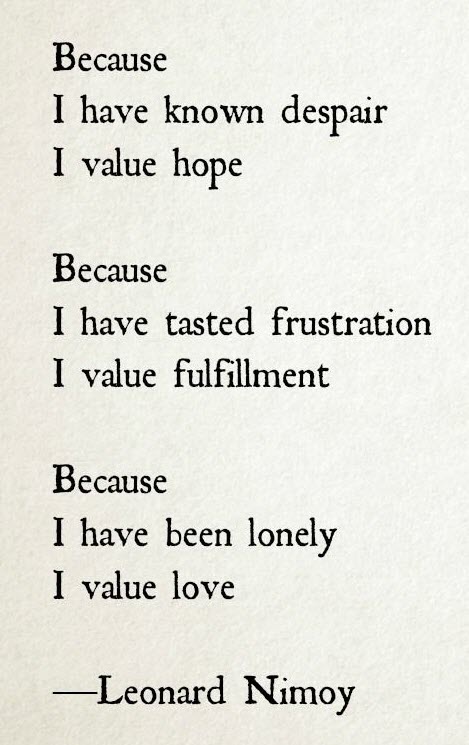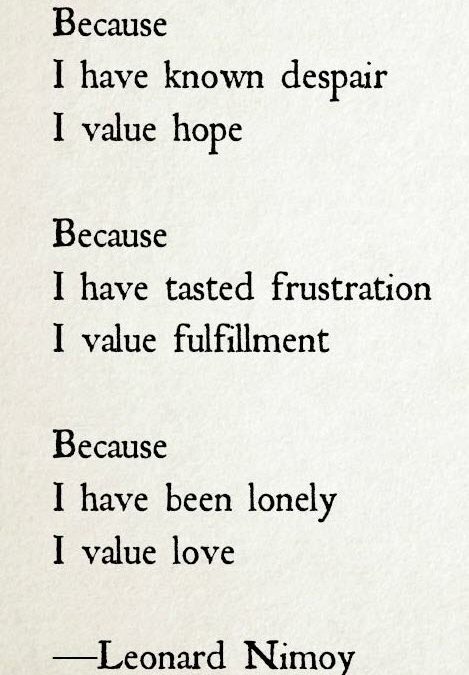Reasons to Value and Protect Hope
Reasons to Value and Protect Hope
 On December 12, 2018, Jessica Starr, a popular 35-year-old meteorologist at the Detroit, Michigan WJBK Fox television station, committed suicide.
On December 12, 2018, Jessica Starr, a popular 35-year-old meteorologist at the Detroit, Michigan WJBK Fox television station, committed suicide.
Last month, Jessica’s husband, Dan Rose, and her mother, Carol Starr, were interviewed on the ABC television show, Good Morning America. Both Dan and Carol said that they believed that Jessica killed herself because of complications that were caused by laser surgery that she had on her eyes in October 2018.
During the interview, Dan stated, “She really knew something was not right within a matter of days. She started to complain of incredibly dry eyes. She had almost no night vision. She had starbursts that she was seeing during the day and at night.”
Carol stated that after the surgery, Jessica lost a significant amount of weight. “I kept saying, ‘Are you eating? Are you okay?’ She kept saying, ‘I’m not eating and I’m not sleeping, Mom. This is worrying me. I don’t think it’s going to get better,’” said Carol.
The surgery that Jessica went through was similar to Lasik eye surgery. The name of the surgery was SMILE, which is an acronym for “small incision lenticule extraction.” With SMILE, a laser is used to make a small opening on the eye to remove a layer of tissue. The removal of the tissue corrects nearsightedness by reshaping the cornea. SMILE surgery is supposed to be less invasive than Lasik.
During the weeks following her surgery, Jessica posted several video diaries on her Facebook page where she talked about complications she was having as a result of the surgery. One of her complaints was that the dryness in her eyes was so bad that she had to use eye drops every five minutes to lubricate her eyes.
When she died, Jessica left behind her husband and two children, a five-year-old and three-year-old.
After her death, Jessica’s family, friends, and coworkers were all in a state of shock. She had never talked about committing suicide. They later concluded that Jessica experienced extreme depression and anxiety about her chronically dry eyes, her lack of night vision, and the starbursts that she was seeing during her waking hours.
Whenever a person experiences chronic pain and/or suffering, there is a possibility that the person will lose hope for the future. This is something that I always talk about when I present an injured client’s case to a jury.
Here’s an example of what I ordinarily say to a jury when I have a client who is experiencing chronic pain and suffering:
The only other thing that I’m going to mention about pain and suffering before I move on is that both pain and suffering interrupt hope for the future. We were all created with a desire for hope.
We hope for a lot of things. That’s what keeps us going. As adults, we can’t wait until we retire. We can’t wait until our next vacation. We look forward to spending time with our spouse and children. We can’t wait until we have grandchildren and the opportunity to influence them during their formative years. We look forward to attending games and cheering for our children and grandchildren. And we look forward to participating in special family events such as going to Disney World together.
But what happens when hope is taken away from us?
Unlike fear — an emotion that makes us want to avoid the future — hope causes us to seek out and pursue the future with great energy and anticipation. Hope gives us the confidence to dive into the future, regardless of any looming obstacles.
Without hope, there is despair. Over time, despair can cause significant damage to a person’s physical, mental, emotional, and spiritual health.
Despair is the worst form of suffering.
Because of her chronic pain, my client knows that she’ll never be able to do the things that she has always looked forward to doing. How can she be a good grandmother if she can’t pick up her grandchildren and play with them? She knows that there can never be any sleepovers, no trips, and no marathon baking sessions with her grandchildren.
Loss of hope — despair — is the worst form of suffering.
You’re going to receive a jury instruction that explains that my client is entitled to recover compensation for the pain and suffering that she has already experienced and the pain and suffering that she is reasonably certain to experience in the future as a result of her injuries.
The other part of that instruction is going to explain that she’s entitled to loss of normal life. You’re going to get an instruction that says, “Loss of normal life means temporary or permanent diminished ability to enjoy life. This includes the person’s inability to pursue the pleasurable aspects of life.”
Loss of normal life includes my client’s inability to enjoy her retirement and to enjoy the pleasures of life, like going to the games or to Disney World with her grandchildren. It also includes her inability to go shopping or on long walks with her husband, or… (list other things she can no longer do).
There is a yearning that is buried deep within the heart and soul of every human being — a yearning for hope. When that hope is lost, despair takes over.
That’s what happened to Jessica Starr. She lost her desire to live. She no longer had any hope for the future. It’s extremely difficult for those of us who are rational and do not suffer from any mental illness to understand what goes through the minds of people like Jessica. But none of us are immune from morphing into a state of confusion, hopelessness, and despair.
More on this topic next week.





2 Comments
[…] a breakdown of what I believe they should award my client. I’ll discuss that particular theme next week. Print this […]
I wrote a comment, filled out the information below it and Posted Comment. It was rejected, saying I need a valid email address. I again put the same email that I always use. I hope it will go through this time, love, Sister Roberta